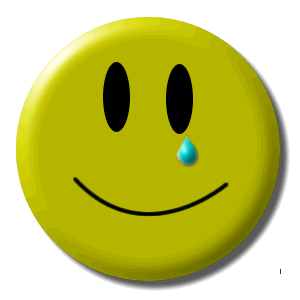
Dr. Hurd recently engaged in a discussion with a journalist about issues related to happiness, self-esteem, psychology, self-help, and much more. What follows are some excerpts from that discussion:
Reporter: It seems to me that we have a fundamental confusion about what happiness even is. Plus happiness is obviously a very different thing for different people. With those kinds of uncertainties in the background, how can we possibly give people meaningful advice about ‘how to pursue happiness?’
Dr. Hurd: One person can’t tell another what should make him happy. Happiness involves a lot of choices. It’s up to a person to investigate, think about, explore, look at examples from others and then ultimately determine what will, or at least might, make him happy. This frightens a lot of people. America is the freest society in human history — yet it’s in America where depression, anxiety disorder and things of that nature are just as rampant (if not more so) than in societies where people have more reason to be depressed. I think this is because so many people fear the responsibility that goes with being able to determine one’s own happiness. They’d rather leave it to somebody else, or to chance, or just not even think about it at all.
The definition of happiness that I like is from philosopher and novelist Ayn Rand: A ‘state of noncontradictory joy.’ So many people pursue contradictions in their thinking and/or actions. That can bring about serious problems. For example, ‘I should live life for others’ contradicts ‘doing what I want to do with my own life, regardless of what anyone says or thinks.’ You can’t have it both ways, and if you try, the resulting contradiction will make you unhappy and conflicted.
Another definition of happiness is serenity. Serenity refers to a state where you pursue and control what you CAN control, and let go of what you CANNOT control. I maintain that serenity is essential for happiness, and in one sense the definition of happiness itself.
Nobody can tell you HOW to pursue happiness in the sense of telling you what should make you happy. But, as mentioned before, there are many ways to pursue happiness.
Reporter: In a strange and paradoxical way, can’t happiness be its own worst enemy? The logic works like this: Happy people are content, satisfied. Content/satisfied people aren’t looking to make changes in life; they’re not proactive. Therefore, they’re oblivious to threats to their happiness. OR, (version ‘B’), happy people tend to be relatively complacent, lazy. (This is the familiar ‘Fall of Rome syndrome.’) So maybe too much happiness is a bad thing?
Dr. Hurd: I believe the ancient Greeks distinguished between short-range pleasure and long-range happiness. It’s not that short-range pleasure is always bad, but if long-range happiness is ignored in the pursuit of short-range pleasure, your life becomes a mess, materially and emotionally. That’s hardly happiness. Even if you could find someone to support you financially in your sole pursuit of short-range pleasure, you’d become vacant and disillusioned because of your failure to meet challenges and lead a self-fulfilling life. Your mind, your primary tool of survival and the means through which you experience happiness, would go to waste. I wouldn’t call short-range pleasure at the expense of longer-range goals happiness. Some people do, I’m sure, but you can’t blame the concept of happiness on their choice to do so.
Happiness only becomes your enemy if you pursue contradictions. For example, ‘I want a committed relationship with one person who loves and trusts me, but I also want to pursue sex and romance with others, in secret, whenever it pleases me.’ It’s impossible to do both. When you try to pursue a contradiction, you end up being unhappy even though happiness may have been your goal. Again, don’t blame irrational or mistaken thinking on happiness. Blame it on the errors in thinking and judgment many people tend to make.
Reporter: Some organizational psychologists posit that happiness — counter intuitively — does NOT produce superior performance in the workplace. Sometimes marginally disgruntled workers do better work. Also, happy workers tend to do much more socializing, ‘lollygagging,’ which is a drain on productivity. Right?
Dr. Hurd: It’s self-evident that people are generally better at something when they’re happy. But there’s also the issue of work ethic. Does a person take pride in what he or she does? That’s the key to work ethic, and the organizational psychologists ought to study the relationship between the presence or absence of this quality and see what role it plays in work performance.
Of course, people with a stronger work ethic and who are happier are, as part of the package, more likely to be ambitious. One person could be unhappy in his job because he’s ambitious and, as of yet, has no further to go. I would much rather employ happy people than not. It’s the unhappy people who drink, abuse drugs and lie in bed depressed. So much for work performance! But the work ethic aspect has to be there. If it is, then you don’t have to worry about people sacrificing work for social relations. They take too much pride in their work. I have heard it said that a good employee is just like a good self-employed person: Dedicated to and in some sense in love with his or her work. You can have, or not have, this quality whether you work for yourself or not.
Concluded in tomorrow’s column.
